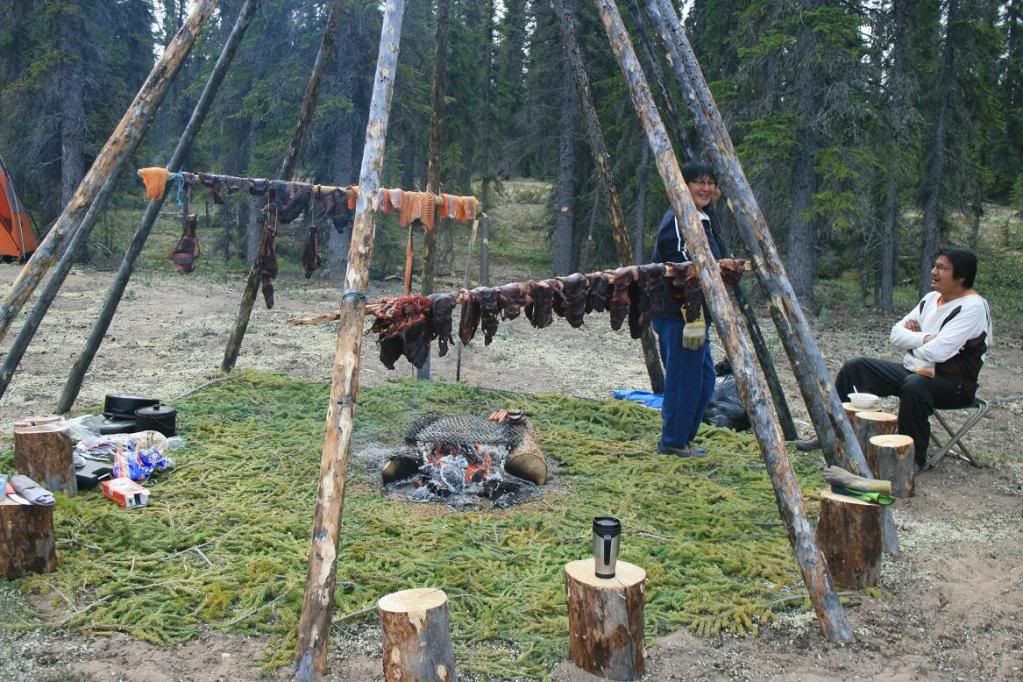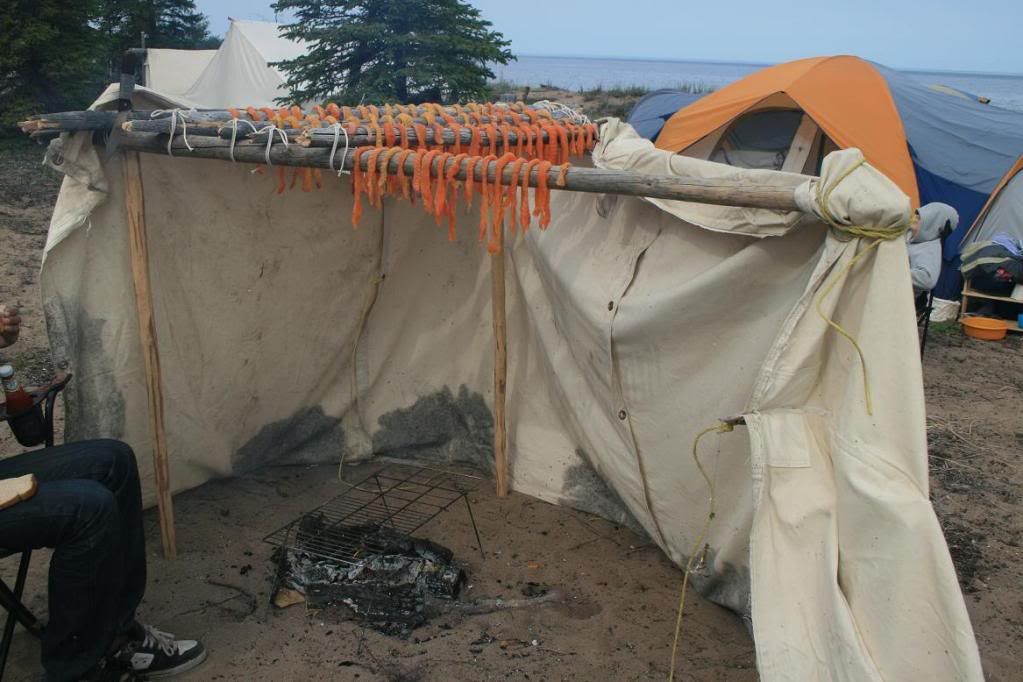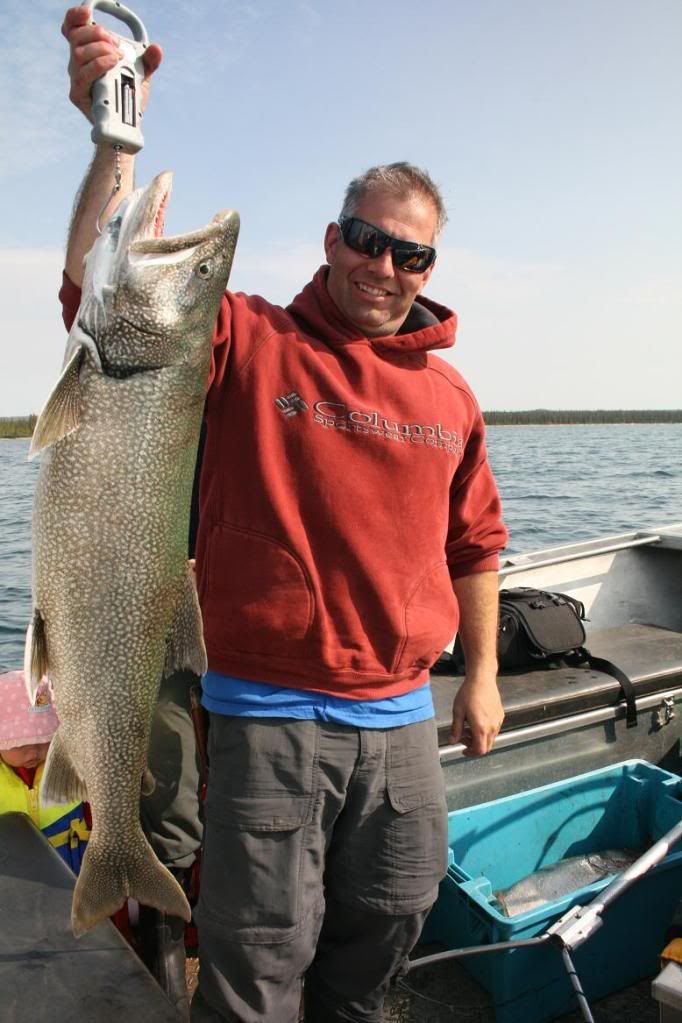Guys kill moose now, early fall. The temp is close to 0C all day, and below at night. Preserving meat is not too difficult. In warmer months, smoking in an open framed structure is easy to do, even for one. Cutting slices off a downed animal is work, but far from impossible. They do not hang the meat to age here, they just kill, and cut. They eat stomach contents for vegetable matter, organs, brains, eyes, everything. Drying meat is just not that hard. It isn't a myth that a moose will get you through the winter. It happens every winter. In warmer months, fish is plentiful. So are berries. Both can easily be preserved by drying for winter use. I realize the numbers say otherwise, but people have, do, and will live alone in the woods in the subarctic.
I think the inconsistencies are due to how the numbers are used. Lets say the numbers are correct for calories burned. Even if they are, that does not mean a guy hikes and hunts for that amount of time every day. With some luck, an animal will be killed, fish will be caught, and shelter built within a week. At very least the fish will be caught. Then once an animal is shot, no more hiking and hunting, at least for a while. There will be plenty of food, and well before it is depleted, another animal is shot.
Meat is not really the problem. It's vitamin c, fats, etc. Berries will meet the vitamin C requirements, but only if we start our journey in summer. Other edible plants contain vitamins, but berries are easiest.
Fish has all the essentials as far as fats go. Birds, muskrat, beaver, and rabbits are plentiful as well, but are lean meats. Luckily, they are also fur bearing, so they are multipurpose.
Here's a simple way to smoke meat. Remember not much heat is needed, the fire is primarily to keep the bugs off....
and the same for fish. Berries too, but there were none here....
A couple meals in one of these, small for this lake....
It's almost like I know what I'm on about...





